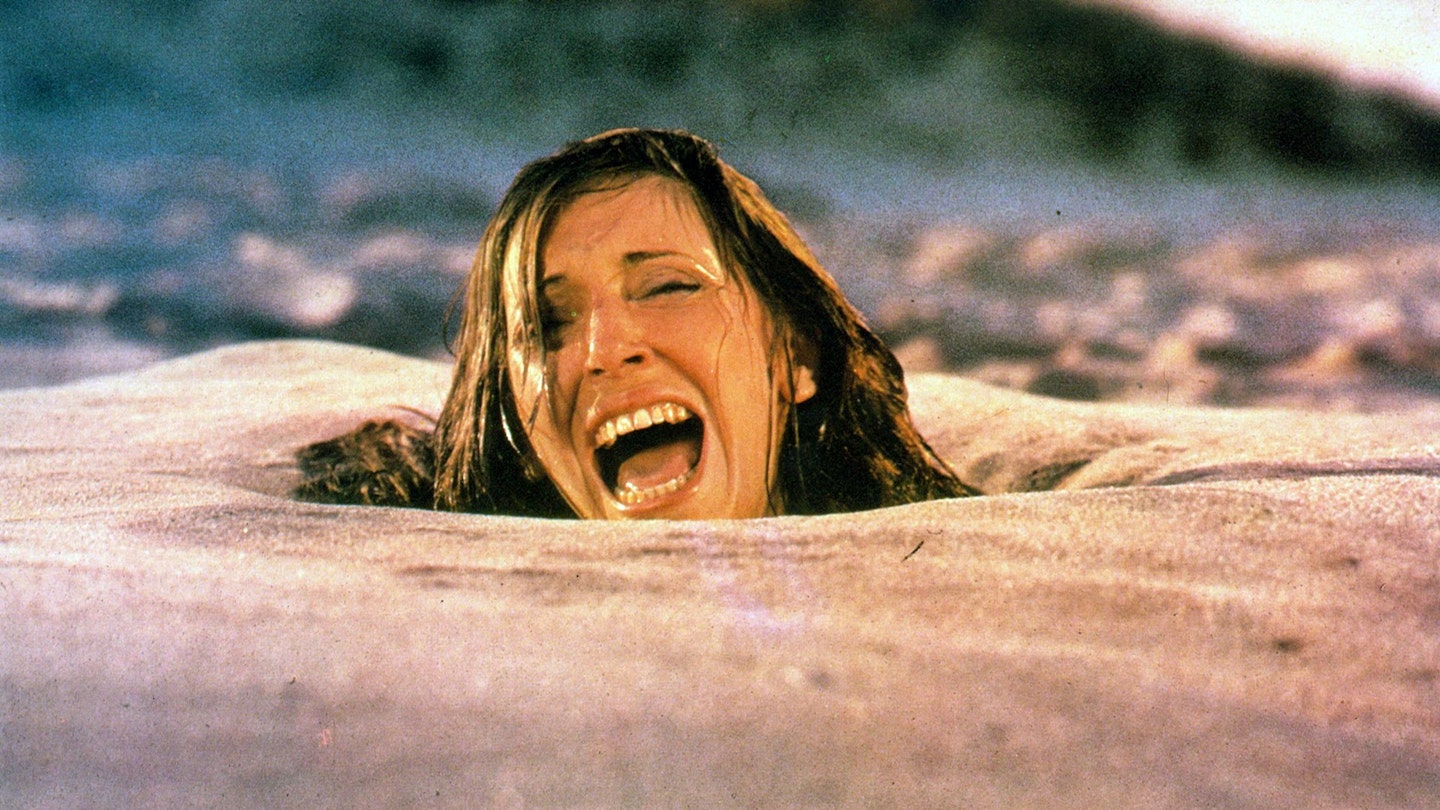A jaunty and well-mounted portmanteau of five gleefully silly horror tales inspired by the drugstore traditions of the E.C. Comics and adapted by native master of the genre Stephen King who even stars in one episode as a hick farmer who picks up an alien fungus. What makes the series so rich and memorable is George A. Romero, who angled his legendary zombie films with a satirical twist, and presents these stories as icky parables. Each of the tales redresses some kind of moral imbalance, as if nature, or, indeed, supernature, seeks to keep its world in order.
The film is framed by a small boy’s chagrin at having his comic book collection thrown away — he plots evil fantasies of revenge that plug into the unfolding quintet of macabre comedy — granting the lurid perspective of a pubescent boy, the favoured slant for horror’s wicked practitioners. We start with the least of the crew, Father’s Day, telling of a zombie father revisiting his vile family as they squabble over the inheritance. It’s the least imaginative, and most schlocky. The Lonesome Death Of Jordy Verrill, starring a woefully hammy King, is much more fun, and really rather tragic, as this lonely hillbilly inspects a fallen meteor only to be riddled with alien plant life.
From there the film has picked up a head of steam, and springs into a lively rhythm. Leslie Nielsen gives the vengeful cuckold of Something To Tide Over You a lustful nastiness, as he buries his wife and lover up to the necks on a beach with the tide coming in — typical of King’s situational punch. The Crate, with the always worthwhile Hal Holbrook, spins the idea of ageing professors avaricious inquiry consuming them as finally they get a discovery that bites back – hell, the box did say, “Danger: Do Not open.” And lastly, the best of all, a Howard Hughes parody as E.G Marshall’s ultra-rich (King’s own swelling coffers offered their own guilty muse) recluse hermetically seals his New York penthouse from infection. The cockroaches, in a fabulous piece of gross-out, find a better place to hide.
It’s all brushed with camp, which tends to sap the film of genuine fear, but that is Romero and King’s aim; the splashy, often giddy, and childish thrill of the yuck.




